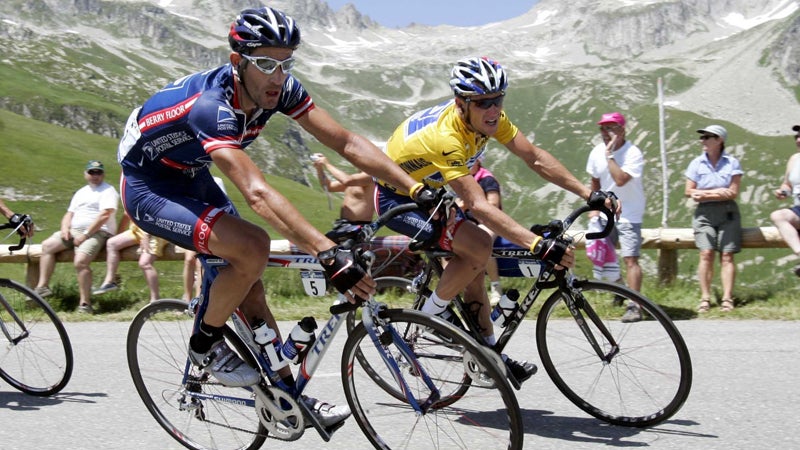Editors' Note: In George Hincapie's new memoir, , the popular rider delves into his past, examining his longtime relationship with Lance Armstrong, his own involvement with performance-enhancing drugs, and the pressure that led him to testify against his teammates.
During his career, Hincapie completed the Tour de France a record-tying 16 times, won the Gent-Wevelgem spring classic, took home the National Road Race Championship title on three occasions (one later stripped), and was a perennial contender at Paris-Roubaix. He retired from racing professionally at the end of 2012, and now plays an active role in Hincapie Sportswear and the professional Hincapie Sportswear Development Team.
In the following exclusive excerpt from his book, Hincapie is confronted by Travis Tygart, the CEO of USADA, who pressures him to testify.
From: The Loyal Lieutenant
It came down to a choice, or really an ultimatum. Either I agreed to talk to USADA or my racing days were over.
I spent the week in between the Tour of California and the National Championships on the phone with my lawyer as he negotiated how and when I'd testify. Throughout those days, I vacillated constantly as to what was the right decision.
I didn't have to talk to USADA, but because they governed my sport, if I wanted to keep riding professionally, they held all the power. We finally agreed that I would talk to them right after Nationals. I almost told them to fuck off, and decided to retire. I called my brother and told him that was my plan. I was tired of fighting. I just wanted it over. But then I realized if I did do that—if I thumbed my nose at them, issued a press release, admitted my doping past, and said my sorrys—nobody would have believed I cared about the sport or tried to change anything.
If I stayed in, as painful as it would be, I could still race and still be part of the change. I would send a message—I'm still here doing what I've always done, and that's help the best.
Christian Vande Velde
I feel the biggest change was from the inside, and it happened long before 2012—which is a compliment to teams like Slipstream and Highroad. The hardest pill to swallow is that we'd done a majority of the work to clean up the sport before the investigation.
Roughly forty-eight hours after crossing the finish line in Greenville [at the National Championships], I was on a conference call with Travis Tygart and his USADA team. With that call, I felt I went against everything I had stood for my whole career. I had been the “loyal lieutenant,” the one guy people could count on. It's what had defined me, and now I was being forced to turn on my teammates, friends, and associates.
After that phone call, I struggled. I knew that I was the last pawn they needed. Once they got me, it was all over. They'd promised a reduced suspension and a statement saying I was part of the change in the sport. Their validation counted for nothing. I'd already been part of the change way before they'd come along.


